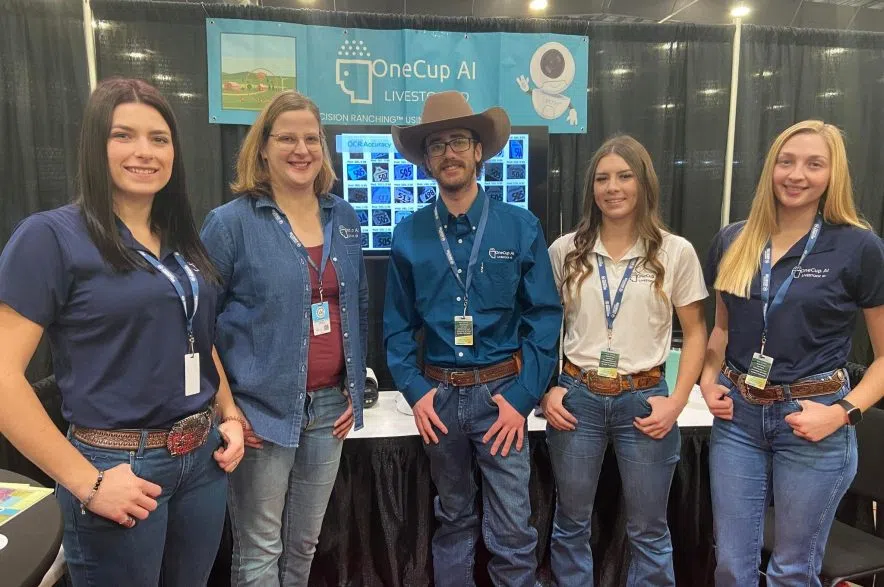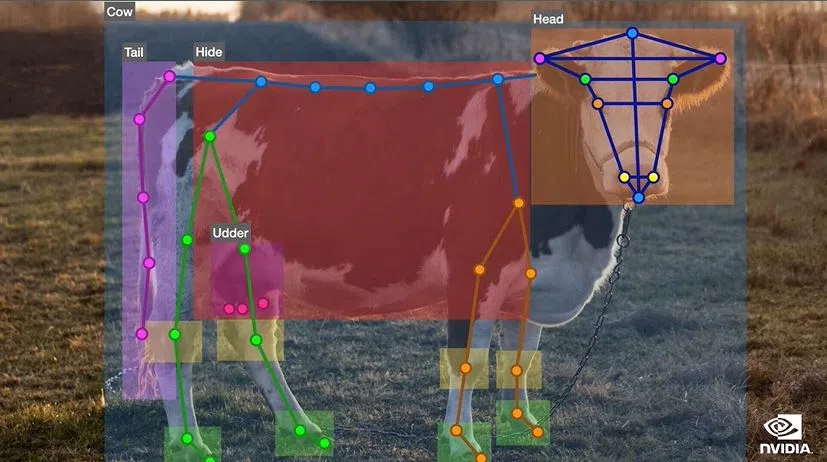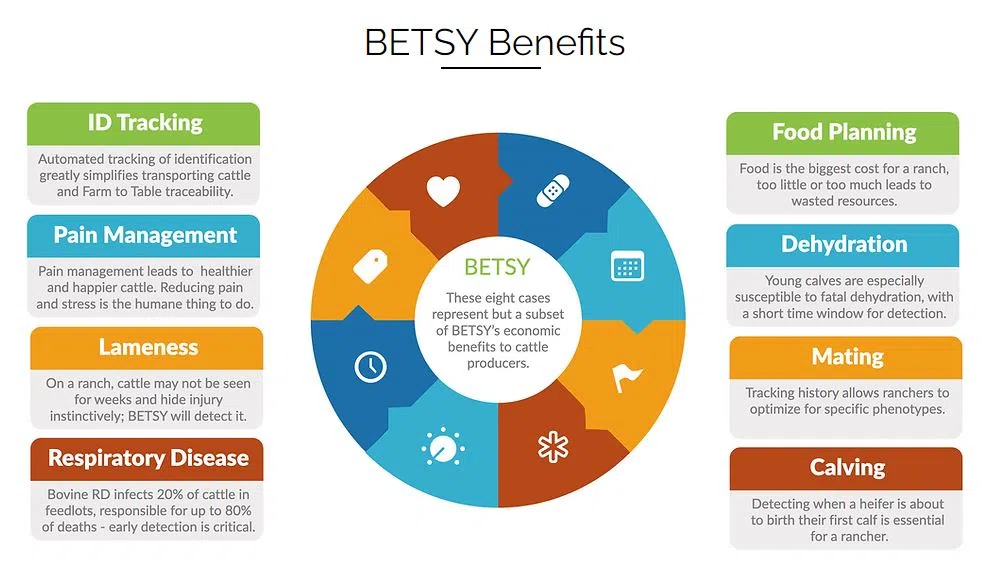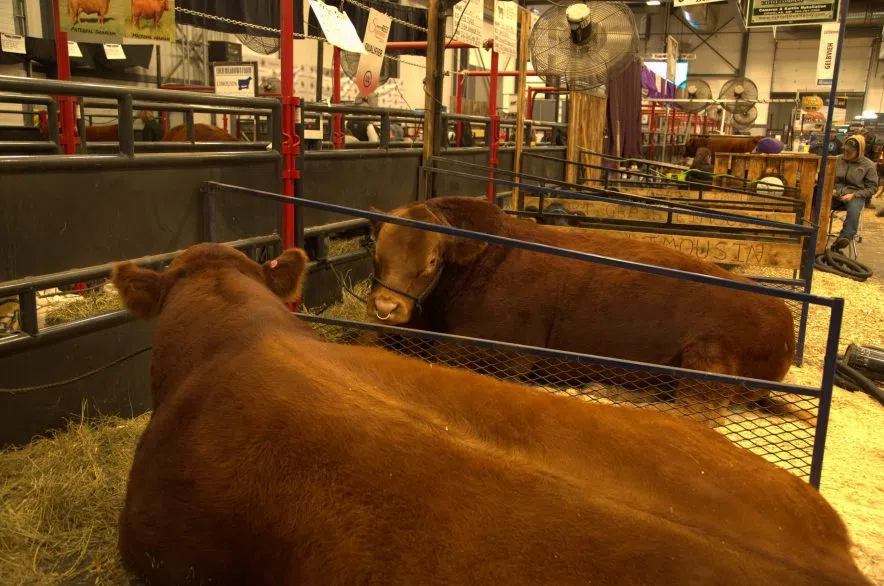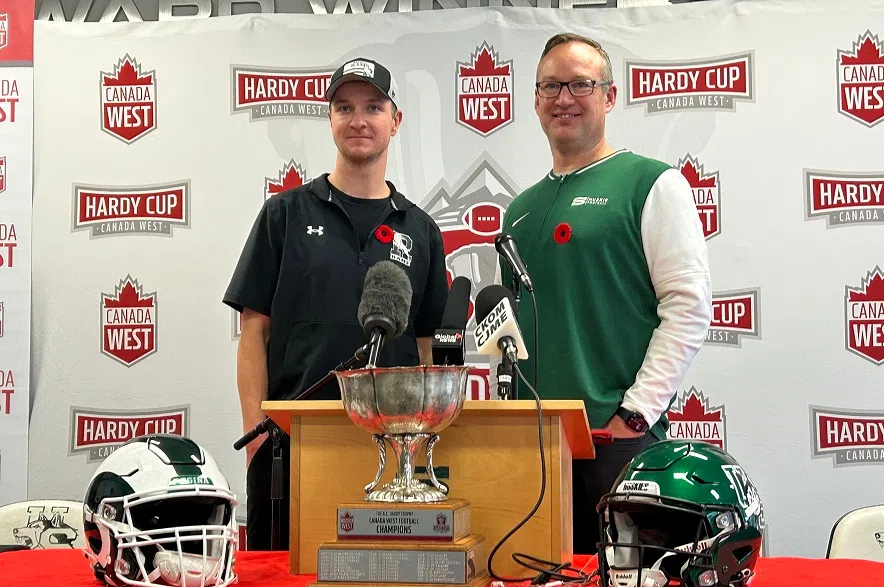It’s out with the old and in with the new: Artificial intelligence is making its way onto farms.
Mokah Shmigelsky is the CEO and co-founder of OneCup AI, a facial recognition system for cattle.
“OneCup AI is a computer vision company that uses artificial intelligence to uniquely identify animals within a herd. And then it tracks and monitors all their changes in behaviour and everything that they’re doing,” she explained.
She brought the system to Agribition to introduce it to local farmers.
According to Shmigelsky, the system can save farmers money and a lot of time. For example, during calving season, producers might go out every few hours to check on the birthing process.
“If it’s -30 C outside and you’re still getting up every two to three hours to check those animals only to find out nothing is happening, you’re probably going to be a little bit tired and a little annoyed,” she said with a laugh.
The AI system called BETSY can help with that. BETSY stands for “bovine expert tracking and surveillance.”
“We wanted to have a name for our AI because it makes it a little more relatable like your Siri or Alexa systems,” said Shmigelsky.
READ MORE:
- Agribition’s Cow Dome takes kids inside Sask. cattle operations
- Sask. cattle industry under threat, SARM and industry groups say
- Cattlemen see provincial funding as a start, but more needed
BETSY can message the producer when a cow is in labour, for example. It sends a photo and identification of the cow so the producer knows exactly when and where to head out and can get a good night’s rest in between.
A number of cameras are set up around the farm where the animals spend a lot of time, like calving pens, water bowls and salt licks.
The cameras upload a video feed into the OneCup AI cloud. The cloud identifies each individual animal and can label them with a name or tag identification.
BETSY can watch for things like injury, lameness, respiratory disease, dehydration, mating, weight loss or gain and more.
The AI creates a history of previous behaviour of the animal. Producers can then track any changes and act accordingly.
The price for the gear ranges. It all depends what farmers need the AI for and how many cattle a producer owns.
Shmigelsky said farmers often us the AI during calving season, which lasts around four months.
Typically, farmers need four cameras during that time. That will cost around $2,400 to $2,500, and the price includes the hardware as well.
“We ship out four cameras and some WiFi gear and then you’re up and running in an afternoon,” she said.
Shmigelsky said the price is worth it.
“In terms of calving season, a lost calf will cost you around $2,000. So if we save one calf in your breeding season, then we break even. But that doesn’t even take into account the time savings that you get with not having to go out multiple times a night,” she said.
According to Shmigelsky, farmers give the AI a stamp of approval as well.
“Our producers are saying one of the best benefits of our system is the peace of mind that it gives them knowing that there’s an extra set of trained eyes on those animals when they’re sleeping or at work,” she explained.
The idea came to her and her husband around a campfire in 2019.
“(We were) talking to my family – who are all producers in the industry – and my husband and I were saying, ‘What could we use computer vision for to help you in your daily practice?’ And my cousin said, ‘I would like to know if you could ID my cows.’ And so my husband Geoff is another co-founder and our CTO and he said, ‘I’m sure I could do that,’ ” said Shmigelsky.
The pair took photos of their cousins’ cows, ran them through facial ID algorithms and found out that it worked.
Afterwards, conversations continued between the Shmigelskys and producers to see what other services the AI could help with.
It took the One Cup AI team less than a year to get BETSY from an idea to an actual product.
“We have a really great, small, dedicated team that have brilliant minds who are creating all the different AI models in our (cloud) pipeline, doing our front end and back end,” she said.
The product was on the market by 2022.
“We took a couple of years to beta test, make sure that the hardware was going to work properly and get feedback from our beta testers as well,” said Shmigelsky.
As for Agribition, Shmigelsky and her team are having a blast.
“So far, it’s been really great. We’ve been having a lot of really interesting conversations with producers and showing them what BETSY can do and what she’s able to do in the future,” she said.
More information on BETSY and how it works can be found here.
